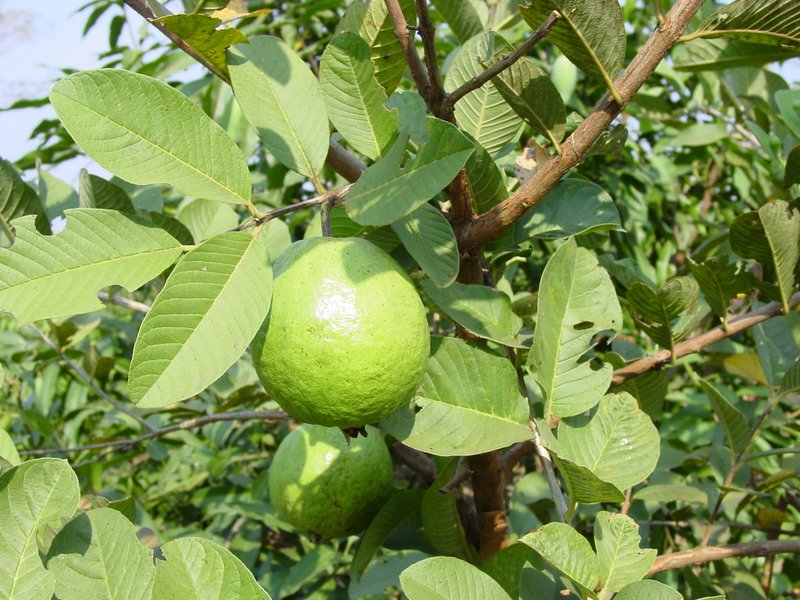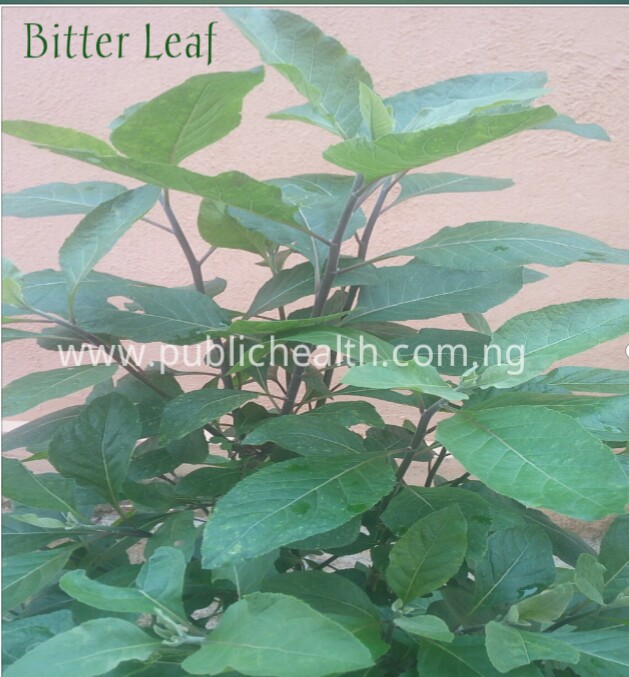Guava scientifically known as Psidium guajava is a common tropical fruit cultivated in many tropical and subtropical regions. It is a small tree in the myrtle family, native to Mexico, Central America, the Caribbean, and northern South America. Guava is a traditional remedy for a range of health conditions. Research suggests that guava fruits and leaves may have a number of benefits.
Health Benefits and Side Effects of Guava Leaf tea and Extracts
Controlling High Blood Pressure
For a normal reading, your blood pressure needs to show a top number (systolic pressure) that’s between 90 and less than 120 and a bottom number (diastolic pressure) that’s between 60 and less than 80. High blood pressure, also called hypertension, is blood pressure that is higher than normal. Consuming guava leaf extract may help lower high blood pressure. A 2016 test-tube study found that the extract had an antihypertensive effect in rat tissues, which means that it may have the potential to reduce blood pressure. This effect may be due to the leaf extract’s antioxidant properties. Antioxidants may lower blood pressure by helping to expand blood vessels. However, scientists need to carry out more studies to determine whether guava leaf extract can reduce high blood pressure in humans.
Management of Type 2 diabetes
Type 2 diabetes is a lifelong disease that keeps your body from using insulin the way it should. People with type 2 diabetes are said to have insulin resistance. People who are middle-aged or older are most likely to get this kind of diabetes. It used to be called adult-onset diabetes. Guava leaf tea may help prevent spikes in blood sugar and improve symptoms in people with type 2 diabetes. A 2010 review of evidence from clinical trials and animal studies suggests that guava leaf tea may help improve insulin resistance and lower blood sugar levels. These benefits may result from compounds in guava leaf extract helping to moderate glucose absorption after a person eats a meal. ALSO SEE: How To Use Chirata In Diabetes
Treatment of Diarrhea
Diarrhea is characterized by loose, watery stools or a frequent need to have a bowel movement. It usually lasts a few days and often disappears without any treatment. Diarrhea can be acute or chronic. Acute diarrhea occurs when the condition lasts for one to two days. Guava leaf tea is a traditional remedy for diarrhea in many parts of the world. Evidence from animal studies suggests that the leaf extract may have the potential to treat infectious diarrhea. A 2015 study investigated the use of this extract in mice with infectious diarrhea. The infection cleared more quickly in the mice who consumed guava leaf extract than in those who did not. The researchers noted that guava leaf extract shows promise as a treatment for this illness. Another study from 2015 found that guava leaf extract helped control diarrhea in chickens with Escherichia coli infections. However, scientists need to carry out more research to confirm these findings in humans.
Alleviate Menstrual cramps
Menstrual cramps are throbbing, aching cramps you get in your lower belly just before and during your period. They’re some of the most common, annoying parts of your period. They can strike right before or during that time of the month. Many women get them routinely. Cramps can range from mild to severe. Taking supplements containing guava leaf extract may reduce menstrual cramps. The results of a study from 2007 suggest that taking guava leaf extract supplements may relieve menstrual pain in women with primary dysmenorrhea. Participants who took 6 milligrams (mg) of the extract each day experienced less menstrual pain than those taking ibuprofen or a placebo. ALSO SEE: How to Use Fenugreek For Painful Menstrual Periods (Dysmenorrhea)
Management of Flu
Influenza, commonly known as “the flu“, is an infectious disease caused by an influenza virus. Symptoms can be mild to severe. The most common symptoms include high fever, runny nose, sore throat, muscle and joint pain, headache, coughing, and feeling tired. Drinking guava leaf tea may help people fight off the flu. In a 2012 test-tube study, guava leaf tea showed promise as an antiviral agent for flu treatment. The researchers found that the tea inhibited the growth of the virus that causes the flu. The antiviral effect of the tea may result from the leaf’s flavonols, which are a natural antioxidant.
Cancer Treatment
Cancer is a group of diseases involving abnormal cell growth with the potential to invade or spread to other parts of the body. These contrast with benign tumors, which do not spread. Guava leaf extract may eventually play a role in cancer treatment. Results of a 2014 test tube, animal, and computer study suggest that compounds in the extract may inhibit the growth of cancer cells. The researchers believe that the effect may occur because guava leaf compounds act like selective estrogen receptor modulators (SERMs). SERMs are a class of drugs that doctors use to treat cancer. They work by preventing cancer cells from multiplying.
Management of Osteoarthritis
Osteoarthritis is the most common form of arthritis, affecting millions of people worldwide. It occurs when the protective cartilage that cushions the ends of your bones wears down over time. Although osteoarthritis can damage any joint, the disorder most commonly affects joints in your hands, knees, hips, and spine. Some research in animals suggests that guava leaf extract may benefit people with osteoarthritis. A 2018 study found that consuming the extract protected against cartilage destruction in rats with induced osteoarthritis. However, researchers have yet to confirm this effect in humans.
Side Effects of Guava leaf tea and Extracts
b Guava fruit is likely safe when eaten as a food. guava fruit and guava leaf extract are possibly safe when used as a medicine, short-term. Guava leaf extract might cause temporary nausea or stomach pain in some people.
When applied to the skin: Guava leaf extract is possibly safe when applied to the skin or inside the mouth as a rinse. It might cause skin irritation in some people.
Special Precautions & Warnings:
Pregnancy and breastfeeding: Guava is likely safe when eaten as food. There isn’t enough reliable information to know if guava is safe to use as a medicine when pregnant or breastfeeding. Stay on the safe side and stick with food amounts until more is known.
Diabetes: Guava might lower blood sugar. If you have diabetes and use guava, check your blood sugar carefully.
Eczema: Guava leaf extract might make eczema worse. Guava leaf extract contains chemicals that can cause skin irritation, especially in people with skin conditions like eczema. If you have eczema, use guava leaf extract with caution.
Surgery: Guava might lower blood sugar. In theory, guava might increase the risk for bleeding or interfere with blood sugar control during and after surgical procedures. Stop using guava as a medicine at least 2 weeks before a scheduled surgery. SEE: Does African Wild Potatoes Cure Cancer?






